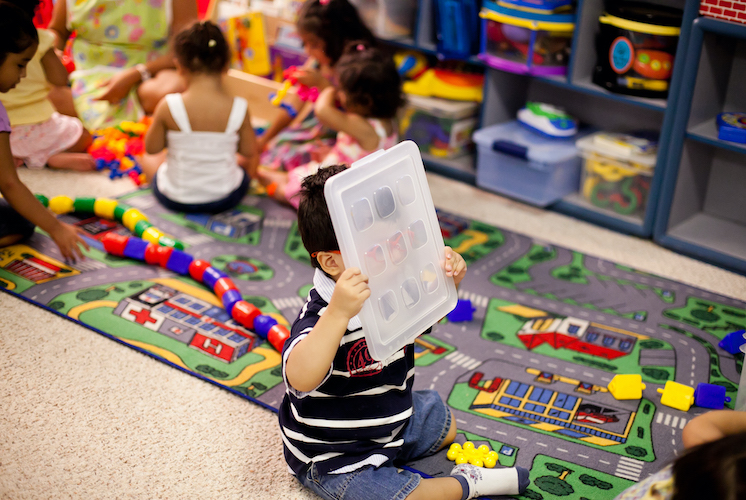What do suspension and expulsion mean? And how are they related to responding to children's behaviors and building supportive early learning environments?
Suspension is the temporary removal of a child from the classroom, program, or school. Expulsion refers to the permanent removal of a child from the program.1
Four Types of Suspension and Expulsion2
- In-school suspension: Practices that involve removing or excluding the child from the classroom. For example, disciplining a child by sending him out of the classroom to the director's office.
- Out-of-school suspension: Practices that involve temporarily removing the child from the program. For example, asking a family to pick up their child early because of behavioral issues, such as biting, hitting, or not following directions.
- Soft-expulsion: Practices that make it so the program is not a viable or welcoming care arrangement for the family and leaves the family with little choice but to withdraw their child. For example, asking the family repeatedly to pick their child up early because of behavior issues, requiring them to leave or miss work frequently.
- Expulsion: Permanent removal or dismissal from the program. For example, telling the family they will need to find another care arrangement or center because the child is not a "good fit" for the program or that the program can no longer support their child.
According to Schachner, et. al.,3 children younger than 5 years old are expelled from state-funded preschool at three times the rate that K–12 students are expelled from school. Private and community child care programs expel children at more than 13 times the rate of K–12 students. Even infants and toddlers are at high risk for child care expulsion. One study found that 42% of infant [and] toddler care centers in a state reported at least one expulsion in the past year. Based on these estimated rates and the current enrollment of young children in early care and education settings, more than 300,000 children may be expelled each year.4
Walter Gilliam, Ph.D. is a national expert on reducing classroom behavior problems and preschool expulsion. He emphasizes that suspending and expelling children in preschool "runs counter to the mission of school readiness and shifts the focus of early education away from the children who need the most help."5 Children who are suspended or expelled from school miss out on the opportunities to develop and practice skills by participating in the daily curriculum, socialize with other children, and interact with positive adult role models. Behavior problems in early childhood that are not addressed may lead to ongoing problems and difficulty with later schooling. They may even cause the child to take on a negative view about learning, school, teachers, and the world around them.6
Research shows that early expulsion and suspension predict later suspension and expulsion. Additionally, data consistently show racial disparities; boys of color experience suspension and expulsion at much higher rates. The Head Start Program Performance Standards address the seriousness of suspension and expulsion with expectations for policies, procedures, and practices that:
- Prohibit or severely limit the use of suspension due to a child's behavior. Such suspensions may only be temporary in nature (45 CFR §1302.17(a)(1)-(4))
- Prohibit expelling or unenrolling a child from the Head Start program because of a child's behavior, unless the program has taken all required steps outlined in 45 CFR §1302.17(b)(1–3)
 Head Start and Early Head Start programs develop and implement suspension and expulsion prevention policies, procedures, and practices in different ways. See Preventing Expulsion and Suspension for one example of how a program approaches this serious issue.
Head Start and Early Head Start programs develop and implement suspension and expulsion prevention policies, procedures, and practices in different ways. See Preventing Expulsion and Suspension for one example of how a program approaches this serious issue.
1 Schachner, Abby, et. al., “Overview of the Issue.” Preventing Suspensions and Expulsions in Early Childhood Settings: A Program Leader's Guide to Supporting All Children's Success (Menlo Park, CA: SRI International, 2016),
2 Ibid.
3 Ibid.
4 Ibid.
5 Gilliam, Walter S., FCD Policy Brief 7: Implementing Policies to Reduce the Likelihood of Preschool Expulsion (New York: Foundation for Child Development, January 2008).
6 U.S. Department of Health and Human Services, Administration for Children and Families, Office of Head Start, National Center on Early Childhood Development, Teaching, and Learning, Preventing Suspension and Expulsion of Children with Disabilities or Suspected Delays [webinar] (Washington, DC, 2018).
Read more:
Resource Type: Article
National Centers: Early Childhood Development, Teaching and Learning
Last Updated: March 4, 2024
